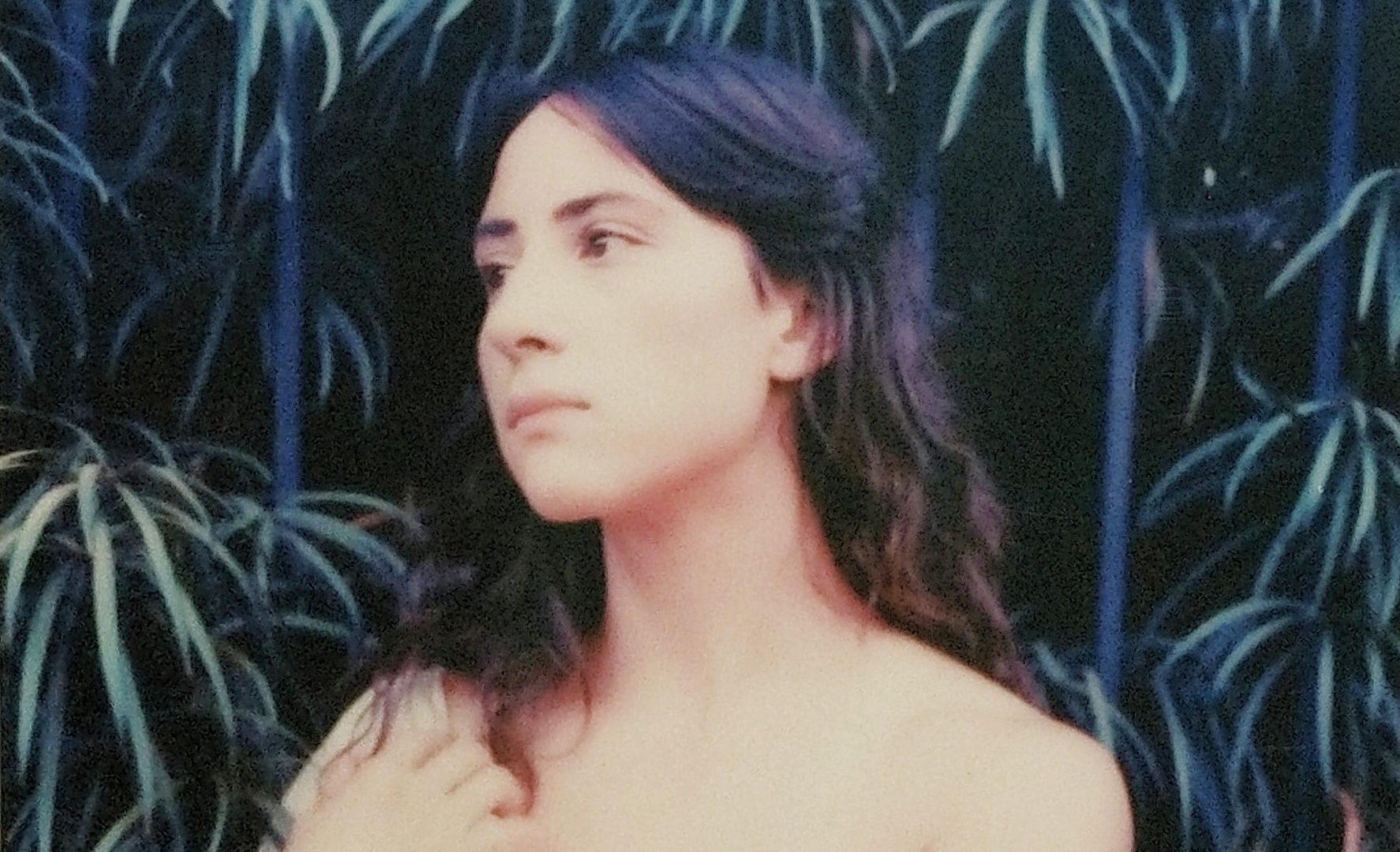TMR TALKS TO...
A.O. GERBER
In this interview feature, we get to know the most radicalist up and coming stars on the planet.
This time we’re speaking with A.O. Gerber, the Los Angeles artist whose folksy alt-rock songs examine the intimacies of human relationships.
Raised in America's Pacific Northwest, Gerber took the adventurous way around when it came to her music career. From early fawnings with the guitar, piano and choirs at elementary school to university studies of Italian and Art History to a two year sabbatical working on farms; she certainly explored many avenues before arriving at her current destination. After the time spent away from academia, Gerber returned with a renewed eagerness for composition and songwriting, which has set the basis for her life as a musician in Los Angeles’ enduring indie scene.
We first came to know A.O. Gerber through ‘In The Morning’, a track inspired by the freedom of travel following the end of a traumatic relationship. Later, we heard ‘All I’ve Known’, a beautiful haunting song that displays Gerber’s skill with light and shadows throughout her music.
Shortly ahead of the release of Gerber’s debut album, Another Place To Need, the songwriter today reveals a new single called ‘Tell Me’. Here, the artist takes her confidential narrative to another level as she discloses the experience of female masturbation, which is layered with intention and dissociation. Her vulnerability is one of the things that makes Gerber one of the most endearing musician’s we’ve come across in some time.
Keep in mind that Another Place To Need LP is out digitally this Friday, 22nd May, and on recycled vinyl on Friday, 12th June, via Hand In Hive / Copper Mouth Records. Pre-order here.
TMR: We first introduced you to our readers with ‘In The Morning’, a contemporary guitar song rich with hand-picked influences and an explorative narrative of loss and freedom. For those new listeners, what is this song about?
For me that song is about finding freedom in the moments you feel most stifled, and trying to hold that complexity—that beauty can exist alongside pain, love with anger, independence with loneliness.
TMR: In our initial review, we called on similarities to Waxahtchee, Julia Jacklin and Angel Olsen, but we’d like to know, which artists have influenced you most?
This question is always hard for me because I’m really reactive musically. I can get obsessive about an aspect of a song or an artists work very easily if you put something new in front of me, so the list changes all the time. But for sure there are artists that have had a lasting influence on me: Sufjan Stevens, Nicholas Krgovich, Julia Holter, Arthur Russell to name a few.
TMR: Outside the world of music, where did you derive your inspiration from for the new album?
Human relationships.
TMR: What’s the significance of your album’s title, Another Place To Need?
The album is a lot about fantasy, delusion and longing, as well as the anxiety that often comes along with those feelings. The phrase “another place to need” comes from the lyrics of one of the songs on the record and just felt like a good summation of those ideas—the feeling of continued lack, and the belief that some “thing” (a person, a place, an idea) could satisfy that.
TMR: The first track you unleashed upon the world back in 2019 was ‘Strangers’, why did you choose this one to set the precedent for your sound and also your relationship with fans?
At that moment with the songs I had recorded, it was just the one I felt most excited about releasing. There was no real thought behind it but that.
TMR: Another song we’d like to dig into with you is ‘All I’ve Known’, which you reportedly worked on for three years. Why did this one take so much longer?
It was just a mixture of life circumstances and the fact that I started recording the song before I played with a band, so it had the opportunity to evolve once it became something we could perform live. I started working on it with producer Jacob Goldman in January 2017, about five months after I’d moved to LA. I had just released an EP which I’d recorded and mixed almost entirely alone. I wasn’t yet looking to work on the next thing but I was sort of in the place to just say yes to anything that felt interesting. Jake and I ended up really clicking creatively and decided to work on All I’ve Known. I’d never worked with a producer before and was really excited about the idea of just letting him take the lead and seeing what happened. We worked on it for some months, but then because of some different things going on in each of our lives decided to take a break from it. It didn’t feel quite finished to me, though, and I couldn’t place why. When I started playing it live with a band (drummer Alex Oñate and then guitarist Madison Megna) in January 2018, the energy of the song totally changed. I went from whisper singing to belting. So when we started recording other songs, we decided to try some new things on All I’ve Known as well. Jake’s an incredible producer and I love what he brought to that track (so much of which remains), but I think I had a hard time feeling like it was mine when I’d originally made so few of the production decisions myself. I’ve learned over the course of the process making this record that I really need to be hands on in order to believe in the final outcome. The rest of the album took two years mostly because all the songs weren’t written when we started recording. It happened in batches. So the process of digging into the All I’ve Known recording and making it feel like my own was stretched over all that time.
TMR: Your approach to releasing music was also a rather cautious process, from learning guitar at twelve-years-old to detouring into your studies to working on farms before delving into songwriting. Have these life experiences enriched the music, and more specifically your album?
I’ve actually been writing songs since I was very little, but didn’t have a way to put them to music until I was twelve. I also played in and released music with a band in college. But I would agree that there was definitely a lot of waiting for what felt like the right moment to make a full length. I absolutely think that time has enriched the music. I think the things that we create are inevitably informed by the time we take to create them.
TMR: Did the fact that young boys are more encouraged with their instruments, sports or other hobbies compared to young girls, have an impact on your confidence with music?
I don’t know if it’s always true that girls aren’t encouraged with their hobbies. My parents have always been incredibly supportive of me and the things I’m interested in. But in recent years I have thought a lot about how, on a cultural level, I feel like young cis-boys are often much more encouraged to “tinker”—to play at things they don’t understand and may not be good at, but develop a skill for in the process. I felt a lot of pressure to be good at everything I did growing up. If I didn’t think I’d be good at it, or I wasn’t naturally skilled, I was scared to commit. That dynamic absolutely had an impact on me and my confidence in my music. I feel like it’s only been in the past four or five years that I’ve started to grant myself the freedom to play and have started to come to peace with the possibility of being really bad at things—which is the only way to get good at them.
TMR: Of the previously unheard songs on the album, which one are you most excited for your audience to hear?
I think 'Old Blue' and 'Tell Me'.
TMR: Naturally, we can’t avoid the elephant in the room… how are you keeping happy and healthy during the covid-19 pandemic?
Like many people, I’m struggling with that. But getting outside safely has been the most important thing for me. I’m lucky to live in a neighborhood with lots of quiet, beautiful streets and hills to walk. I have a whole new appreciation for riding my bike. And I’m reading a lot.
By Hannah Thacker
Photo credit: Nico Bernal




